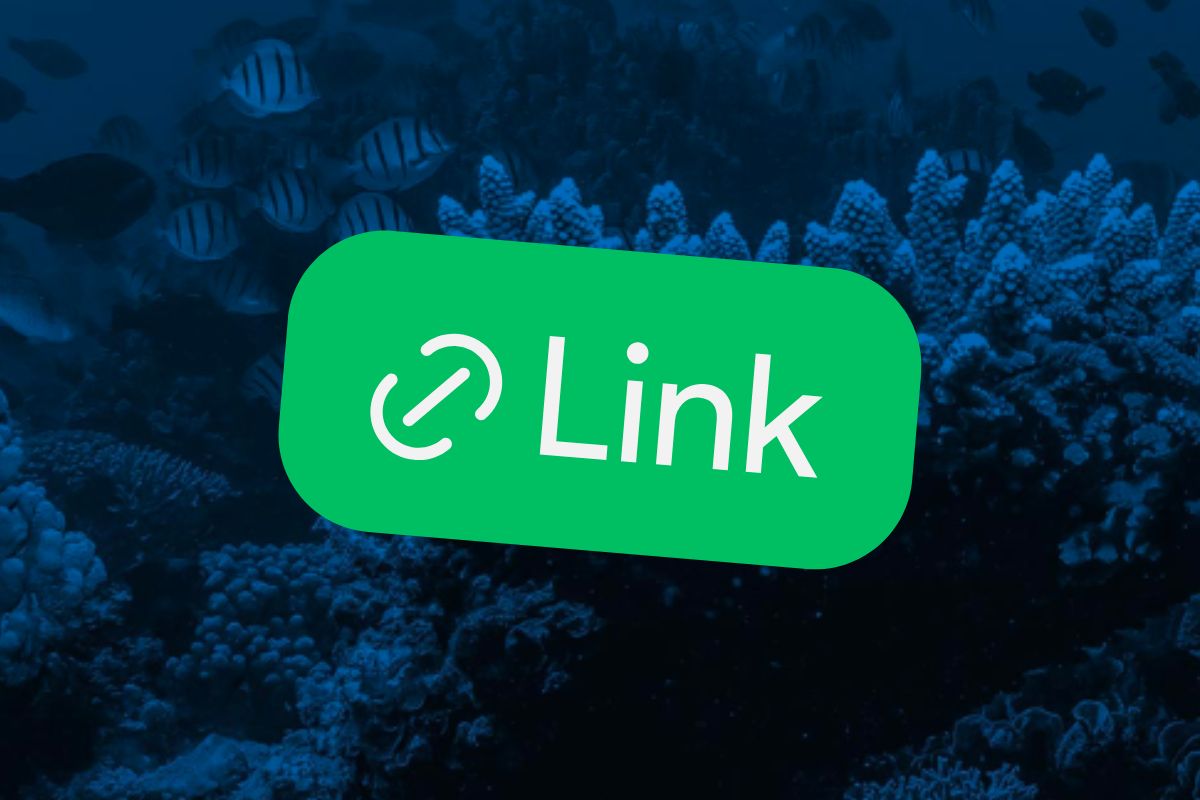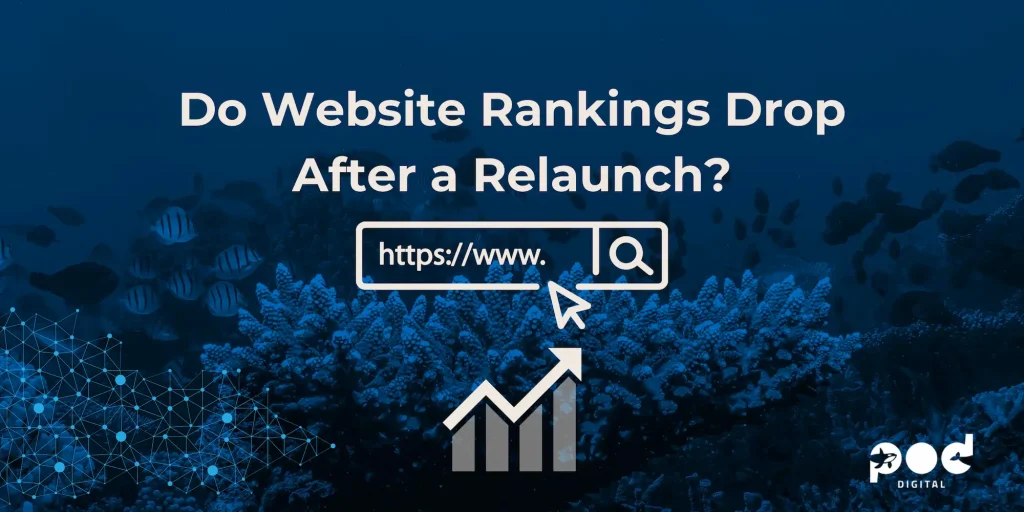When investing in an SEO strategy, you may wonder, what is the importance of backlinks? Every business wants to rank higher on search engines to reach more potential customers. Well, backlinks are a contributor to this, establishing your authority and increasing visibility online. That’s why they’re such an important part of any SEO campaign.
What are Backlinks?
In SEO, a backlink is a link from another website to your website with an anchor text. Also known as “inbound links,” they are a vote of confidence from other websites, communicating to Google that your site is trustworthy and relevant.
Restaurant Analogy: How Backlinks Work
Imagine you’re looking for a great restaurant and multiple friends recommend the same place. The more credible the recommendation, the more likely you are to believe it’s worth visiting.
Backlinks work the same way. When reputable websites link to your site, search engines see it as a strong recommendation, boosting your credibility and rankings.
Why Are Backlinks Important for SEO?
Backlinks are one of the most important factors in SEO because they help improve a website’s ranking, visibility and drive relevant traffic. High-quality inbound links signal to search engines and now AI-driven search that other websites find your content valuable.
According to the Head of our SEO Department, Maisie Bee:
“Backlinks remain a fundamental pillar of SEO. They continue to be a key ranking factor, signalling trust and authority to search engines, making them as important as ever.”
In fact, over 96% of webpages don’t get any organic traffic from Google. 66% of those pages didn’t have any backlinks from other sites. Backlinks are actually the foundation of Google’s original page rank algorithm and still impact organic search performance today.
How Backlinks Help SEO
Backlinks are important in SEO as they help you stand out if you’re competing for the same keywords. This is especially important in competitive markets, where many companies offer similar services. We’ve seen well-structured backlink strategies help businesses outperform their competitors.
Key SEO benefits:
- Improving search engine rankings: Links from authoritative sites improve your organic ranking.
- Increasing organic traffic: Higher rankings attract more organic traffic.
- Building trust and credibility: Quality backlinks make your site appear more credible.
- Faster indexing: They help search engines find and index your pages quicker.
- Improving visibility: Increase your site’s visibility to potential customers.
How Google’s Algorithm Affects Backlinks
Google isn’t just looking for any backlinks. It wants high-quality, relevant ones. Before Google Penguin (2012), websites could rank using backlink farms.
These are websites designed solely for providing links to other sites, often with exact match anchor text. Now, those practices are considered “blackhat” SEO. Google looks for:
- Quality over quantity: Google prefers quality backlinks from relevant sites over lots of low-quality links.
- Relevance check: Links and references from sites in your field are far more valuable.
- Anchor text analysis: The words in the link matter and using relevant keywords helps Google understand the page.
- Penalty for manipulation: Buying backlinks or using link farms can lower your rankings.
- Algorithm updates: Google updates, such as Penguin, focus on stopping link manipulation and stress quality links.
Today, Google prioritises natural, quality backlinks, focusing on relevant and honest sources that genuinely show the value of the content. It penalises spammy backlinks, which will lead to a drop in your rankings.
Key Factors for a Strong Backlink Profile
Simply acquiring links is not enough. You must consider:
- Anchor Type (exact, partial, naked or natural anchors)
- Is the website you’re linking from relevant to your industry?
- Which landing page are you going to point the anchor and backlink to?
- Is the linking website reputable and does it have a high domain authority?
- Is the website you’re linking from secure?
Best Strategies to Build High-Quality Backlinks
When you start thinking about backlink acquisition, you may wonder where to even begin. At Pod Digital, we help businesses climb search rankings and below are a few strategies that work:
1. PR and Content Marketing
Not all backlink campaigns require a budget. Some simply need good content. By producing high-quality content that is sharable, other websites will naturally link to it. This is referred to as a natural backlink, as it occurs without any direct effort on your part.
Content marketing and PR campaigns that capture the attention of journalists can lead to mentions in top publications too.
2. Guest Blogging
Guest blogging is one of the most effective ways to acquire high-quality backlinks. Unlike PR activity and content strategies, which depend on successful outreach, guest blogging guarantees a backlink. By publishing content on another website, you control where the link points and ensure that your backlink profile continues to grow.
To maintain a competitive edge, guest blogging should be done consistently, ideally on a monthly basis. If you stop acquiring backlinks while your competitors continue, your rankings may decline over time.
3. Competitor Backlink Analysis
Want to outrank your competitors? First, see where their backlinks are coming from. Start by analysing your top-ranking competitors. This doesn’t necessarily mean your biggest business competitor, but rather the website ranking first for your target keyword. Using competitor backlink analysis, you can:
- Identify where your competitor is getting backlinks from.
- Compare your backlink profile to theirs and find gaps in your strategy.
- Discover directories, unique backlinks and industry-specific websites they are linked from.
4. Google Search
A simple yet effective way to discover backlink opportunities? Google it!
- Searching for industry-related topics to find relevant websites
- Analyse them using SEO tools such as Ahrefs to determine their authority and relevance.
- Reach out for collaborations, guest posts or link placements.
5. Social Media and Content Distribution
Social media continues to grow, but it is entirely dependent on content! Many websites publish articles on their social media profiles, making social channels a great place to discover backlink opportunities. By identifying industry-relevant social media profiles and tracking the articles they share, you can find valuable sites for backlink opportunities.
Dofollow vs Nofollow Links
There are two types of backlinks:
- Dofollow links: Pass on page authority to the website the link points to, directly helping SEO rankings.
- Nofollow links: Do not pass direct page authority but still provide value by diversifying your backlink profile and driving referral traffic.
A balanced mix of dofollow and nofollow links is essential for a natural backlink profile. Referring back to PR activity, many high-authority websites, especially news outlets, use nofollow links. Google still recognises this. If you are paying for a backlink, always aim for dofollow links, but don’t obsess over it as both have value.
Quality Over Quantity

Not all backlinks are equal. Obtaining one quality link from a highly relevant website will outweigh a high number of links from less relevant sites.
For example, if you are an online retailer selling fitness equipment, it would be far more valuable to get a backlink from Strong Fitness Magazine. Obtaining 20 backlinks from unrelated, low-authority websites would not provide the same level of benefit.
Authoritative industry websites know their value, so you may need to pay for advertorials or create outstanding content that earns organic backlinks. Both can be costly. However, the long-term benefits make it worth the investment, as your Return on Marketing Investment (ROMI) will improve from increased SERP results.
Investing in Backlinks: The Long-Term SEO Strategy
We understand why business owners are often sceptical about investing in backlinks, especially given Google’s ever-evolving algorithms. However, the reality is all media is built around content. As long as you consistently produce high-quality onsite and offsite content, your investment in backlinks will always pay off.
For sustained success, you need a variety of good, high-quality backlinks and low-level backlinks to keep the SEO engine running.
This scepticism goes hand in hand with the general mistrust of SEO – yet it’s the desired marketing channel that any business owner wants because the ROI exceeds any other channel. It’s those business owners that trust the process, take sight of the data and invest with an eye on the future that will prosper in the organic rankings.
You really need to invest in backlinks alongside the onsite strategic elements that include technical audits and regular content. Whether you have an in-house SEO or pay an agency by the hour, it makes sense to add a little extra budget to acquire more and more backlinks over time. If you think your competitors reached the top spot without investing in backlinks, you’re wrong… That is unless your priority keyword is so obscure that no one else is competing for it!
Strengthen Your Backlink Strategy with Pod Digital
Integrating a strong backlink strategy with your SEO efforts is essential for businesses looking to improve their search rankings, boost visibility and drive more relevant traffic. Get in touch with our team of SEO experts, who create personalised strategies by analysing your industry and competitors to enhance your online presence.







